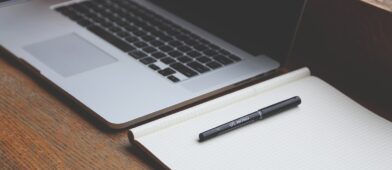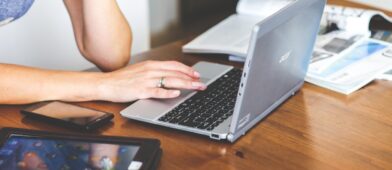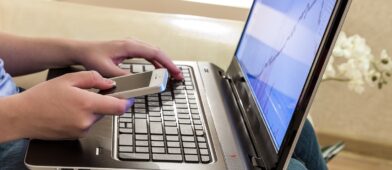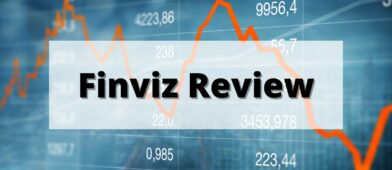Options trading is often promoted as an investment strategy anyone can participate in.
But is that really the case? While options trading has the potential to produce significant returns, it requires considerably more education and training than a common buy-and-hold investment approach.
What is options trading, and how can you learn to trade successfully? This article is meant to be an overview of the process, not a comprehensive guide. After reading, continue to learn all you can about options trading before you invest.
Table of Contents
What Is Options Trading?
Options trading is the process of trading options contracts. In the simplest of terms, it involves purchasing a contract that gives the holder the option to either purchase (call option) or sell (put option) a security at a specific price by a certain date.
The buyer, commonly called a holder, will pay a small premium for the option, which represents a small fraction of the value of the underlying securities. The premium will be forfeited if the holder fails to exercise the option. In most cases, the loss of the premium paid is the main risk involved in the trade.
An investor may trade options to protect the value of securities he already owns or to speculate on the future direction of securities he doesn’t own. In either case, it requires a very small investment, and the investor can earn a relatively large return with very little risk of capital.
Call Option Example
For example, you might enter a call option to purchase 100 company shares with a current stock value of $50. The option may enable you to purchase the shares at $55 within 90 days of executing the option.
If the value of the stock rises to $60 before the contract expires, you can exercise your option to purchase the shares for $55, then immediately sell them at $60. On a 100-share contract, it would represent a profit of $500 (100 X $60 – $55). If you paid a premium of $1 per share for the option, your profit would be reduced by $100, for a net profit of $400.
If the stock doesn’t rise in value to a level that would make the trade profitable, you can simply let the option expire. Otherwise, your total loss will be the cost of the premium, or $100.
In effect, this would enable you to participate in the gains of a stock you might otherwise purchase upfront for $5,000 for just the cost of the $100 premium. That creates leverage of 50:1.
This arrangement – the ability to leverage a large purchase with a small investment – makes it easy to see why an options strategy is so attractive.
How to Trade Options
To get started, you’ll need to open an account with a broker that has options trading. Most do, but some are more accommodating of using options as a strategy. Options trading is more common in taxable accounts as there are fewer restrictions than in retirement accounts.
Options trading is generally permitted in IRAs but on a much more limited basis. But even within an IRA account, you may need to get specific authorization for options trading from the broker. Options are generally not permitted in 401(k), 403(b), and TSP plans since those are employer-sponsored plans.
Even if options trading is permitted in an account, you should familiarize yourself with your broker’s requirements.
Options and IRA Accounts
This is especially true in the case of IRA accounts, which may have special requirements or limitations. For example, you cannot use margin trading in connection with options since borrowing any funds within an IRA constitutes an immediate distribution of funds and is subject to income tax.
Strike Price and Expiration Date
Options contracts come with the right to buy or sell the underlying securities, which are typically in blocks of 100 shares. The contract will include a strike price, at which the option will be exercised, presumably generating a profit for the holder. And finally, there will also be an expiration date.
For example, the option may grant the holder the right to buy or sell the underlying security for up to 90 days after contract execution. The 90th day will represent the expiration date. After that, the holder will lose the ability to exercise the option.
But once you enter an options contract, you are not required to exercise the option. You can choose to let it expire, and your only loss will be the premium you paid for the contract, as well as any commission or per-contract fee imposed by the broker.
✨ Related: What is An Interval Fund?
Where to Trade Options
There are many online broker that allow you to trade options, including the following platforms:
🏆 TastyTrade
TastyTrade is a platform designed for active traders, especially if you are involved in options trading. They are frequently listed as one of the best, specifically, for options trading because of the suite of tools they provide on top of a favorable commission structure. The options trade is commission free and each contract costs just $1 with a $10 cap per leg plus no commission to close a position.
There is no minimum amount to open an account. It’ll let you look at the tools to get a sense of how powerful they are.
TastyTrade offers a generous bonus of up to $5,000 based on how much you transfer into your account:
| Deposit Amount | Cash Bonus |
|---|---|
| $2,000 – $4,999 | $50 |
| $5,000 – $24,999 | $100 |
| $25,000 – $99,999 | $500 |
| $100,000 – $249,999 | $2,000 |
| $250,000 – $499,999 | $3,000 |
| $500,000 – $999,999 | $4,000 |
| $1,000,000+ | $5,000 |
tastytrade, Inc. (“tastytrade”) has entered into a Marketing Agreement with WalletHacks.com (“Marketing Agent”) whereby tastytrade pays compensation to Marketing Agent to recommend tastytrade’s brokerage services. The existence of this Marketing Agreement should not be deemed as an endorsement or recommendation of Marketing Agent by tastytrade and/or any of its affiliated companies. Neither tastytrade nor any of its affiliated companies is responsible for the privacy practices of Marketing Agent or this website. tastytrade does not warrant the accuracy or content of the products or services offered by Marketing Agent or this website. Marketing Agent is independent and is not an affiliate of tastytrade.
tastytrade was previously known as tastyworks, Inc.
Ally Invest
Ally Invest is a popular investment brokerage that offers self-directed trading. You can trade options, as well as stocks, exchange-traded funds (ETFs), mutual funds, and many other asset classes. Stocks, ETFs, and options trade commission-free, but options cost $0.50 per contract. In addition to self-directed trading, Ally Invest offers wealth management, robo-advisor portfolios, and online banking platforms through Ally Bank.
Robinhood
Robinhood is an investment app designed specifically for use with your mobile device. Like Ally Invest, Robinhood also offers commission-free trading of stocks, options, and ETFs. But Robinhood charges no contract fees on options trades and offers some of the lowest margin rates in the industry.
Robinhood is also an excellent choice if you want to invest in cryptocurrencies on the same platform where you hold your other investments. You’ll also have an opportunity to earn up to 4.90% APY on your cash deposits. If that isn’t enough, Robinhood currently offers a 1% contribution match on your IRA contributions.
Webull
Webull is an investment app similar to Robinhood. You can invest in cryptocurrencies, as well as stocks, options, and ETFs. All are available for commission-free trading, and there is no per-contract fee on options. Webull also offers a virtual trading platform so you can sharpen your investment skills before using real money.
Webull also offers a cash management account, currently paying up to 5.00% APY. And if you prefer to have part of your portfolio professionally managed, they offer Webull Smart Advisor. It’s a robo-advisor that provides complete investment management, including periodic rebalancing of your account.
Different Types of Options Trading
“Options trading” is a generic term for a fairly large number of related investment strategies. Below is a brief description of several options trading strategies.
Call Options
A call option is a contract giving its owner the right to buy a security at a specific price within a defined time period. It gives the owner the right to buy the security but not the obligation.
Put Options
Virtually the opposite of a call option, a put option gives the owner the right to sell a security at a specific price within a defined time frame. However, the holder is not obligated to sell the security. The put holder pays the call holder a premium for this option.
Covered Calls
A covered call is a call option where the holder actually owns the underlying securities in the contract. The investor may use a covered call to protect the value of his or her security position or even generate extra revenue on the asset.
Married Put
The opposite of a covered call, the investor owns the underlying securities of the contract but places a put option for the right to sell the stock to protect against a decline in the value of the securities.
Protective Collar
A protective collar is an options strategy that enables the holder of a long position in securities to purchase both a call option and a put option. It’s typically used when the investor has a substantial gain in the underlying asset by locking in the value. However, it may require the investor to sell their shares within the option period.
Long Straddle
Similar to a protective collar, the investor purchases both a call and a put option on the same securities. The two options have the same strike price and expiration date. It can enable the investor to have unlimited gains since either option can be exercised within the option term.
This is not a complete list of options strategies, but covers the most common ones. Other strategies require a greater degree of knowledge, skill, and experience.
Advantages of Options Trading
Options trading requires a modest upfront investment since the premium on an option is only a tiny fraction of the underlying security value. As a result, a small investment can produce potentially large returns.
Options trading can also be used as a hedge against a long position by protecting the specific value of a position for a specified amount of time. Also, returns generated by a small position in options can complement a more traditional portfolio.
Disadvantages of Options Trading
Not everything about options trading is positive. It requires a certain amount of investment sophistication and is unsuitable for the average investor. Certain types of options strategies involve a significant amount of risk, including unlimited loss potential.
Options trading is also not a passive investment strategy. It requires more hands-on than buy-and-hold investing and requires participants to be fully aware of their investment activity at all times.
Lastly, you can trade options in an IRA but with significant restrictions and limits. Generally, options can’t be traded in an employer-sponsored retirement plan.
Glossary of Terms
Options trading has its own “language,” with terms describing specific activities. Nasdaq.com has a list of several hundred terms you may come across with options trading. But to keep things simple, here is a summary of the most common terms you’re likely to see:
Arbitrage: the process by which professional traders simultaneously buy and sell similar securities for profit at theoretically zero risk.
Ask (offer) price: The lowest price a seller is willing to accept for a security.
At-the-market order/market order: An order to purchase or sell at the best available price. These orders must be executed immediately. Buy orders are generally executed at the ask price, while sell orders are executed at the bid price.
At-the-money: An option where the strike price equals the underlying security’s market price.
Bid price: The highest price a buyer is willing to pay for a security.
Call: An options contract giving the buyer the right to purchase a specific number of shares at a given strike price on or before the contract expiration date.
Covered call: A call option in which the holder owns the underlying securities in the options contract.
Contract size: The number of shares included in a contract, typically 100.
Exercise: The completion of a buy or sell order, as in “exercise your option.”
Expiration date: The date by which the option to buy or sell must be exercised. If not exercised, the option will expire.
In-the-money: Describes when an option has intrinsic value. For example, a call is in-the-money when the stock’s market price is greater than the option strike price, creating the potential for a profitable trade.
Premium/Option price: The amount paid by the buyer of an option contract for the right to buy or sell a security. The premium is also the amount of funds the option buyer will lose if the contract is not executed.
Strike price: The price level of the underlying security that the option holder hopes to reach before a profit is made.
Volatility: The security’s market price propensity to change, up or down.
Is Options Trading a Sound Investment Strategy?
Though options trading is sometimes promoted by participants as an ordinary investment strategy, it’s not one meant for all investors. It requires more knowledge and skill, and even then, it may not be consistently profitable.
If you’d like to add options trading to your investment strategy, start gradually. Plenty of educational resources are available on the web, and you can begin applying them using a virtual trading account. That way, you can learn how to trade options without risking your own money. It can even help to work with a mentor who has extensive experience with options trading.
Finally, recognize that options trading should never be your primary investment strategy. Think of it as a supplement to a more balanced and traditional overall strategy.



